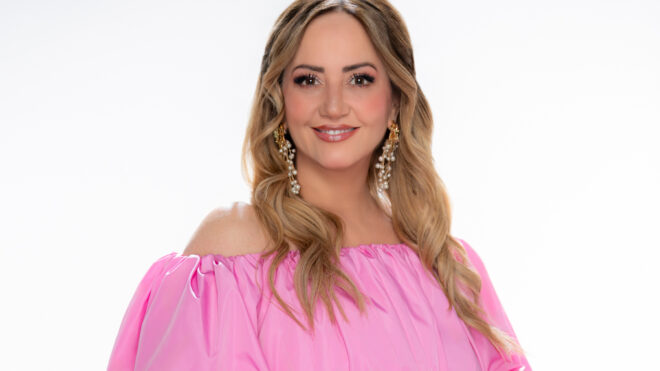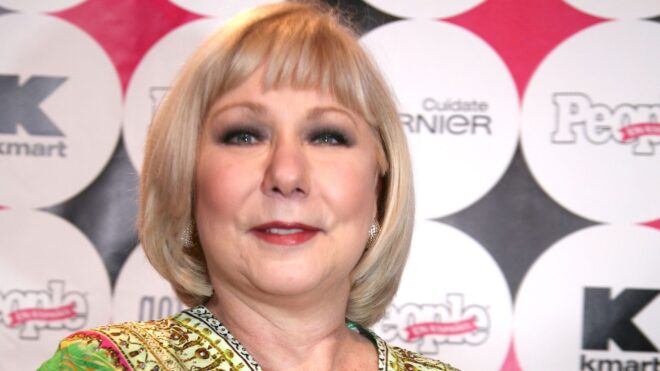There's was a time when I (and every other Latina out there) never thought twice about skin cancer. For me melanoma was just one of those scary diseases doctors and teachers would warn you about, but not something that would ever actually affect me. After all, I'm brown! But these days more and more of us are realizing that just because you have medium or dark skin, doesn't make you're less susceptible to skin cancer. In fact, according to Dr. Maria Patricia Rivas, Hispanic board certified dermatologist for Lubriderm, the percentages in melanoma among Latinas have definitely increased because of lack of sun care. Scary thing is there's a lot more to skin cancer than a lot of us even know!
Read more ¿Qué más?: Is coconut oil really has healthy as they say?
Did you know that melanoma is not the only kind of skin cancer? And are you even using sunscreen properly? I had a chat with Dr. Maria Patricia Rivas on some of the important skin cancer facts out there we all need to know along with tips on how to prevent it!
Image via Thinkstock
Melanoma isn't just a big dark mole
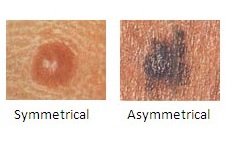
There's more to melanoma than just a big dark mole, ladies. "Other signs of melanomas are what we call the ABCDE signs of melanomas," Dr. Rivas says. "Asymmetry (if you draw a line in the middle of the mole, the 2 halves do not match), uneven borders, different colors within the mole (varying shades of brown, black, gray), diameter (larger than a pencil eraser, but can be smaller when diagnosed early), evolving (a mole that changes in size, shape, colors or becomes itchy or bleeds)." Rivas suggests performing an at-home skin exam, looking out for any new growth, moles or lesions.
Melanoma isn't the only type of skin cancer
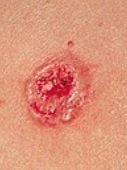
Melanoma may be the deadliest form of skin cancer, but it's definitely not the only type. There are actually several kinds. "I try to educate my patients about skin cancer every day, that whenever you bring up skin cancer, they think of an ugly black mole which is melanoma. But it's not the only form of skin cancer," Rivas says.
"Overall, the most common type of skin cancer is called basal cell carcinoma and its incidence is correlated with sun exposure throughout your life," she adds. "Basal cell carcinomas can appear as open sores, pink shiny bumps, red/pink persistent areas, or pink/brown bumps that patients believe is a mole. A lot of patients come in to the office and refer to the spot as a 'non-healing pimple or sore.' This type of skin cancer is less spoken about because it is less aggressive and the risk of metastasis/mortality due to basal cell carcinoma is very low compared to melanomas, for example."
Tanning beds aren't any safer
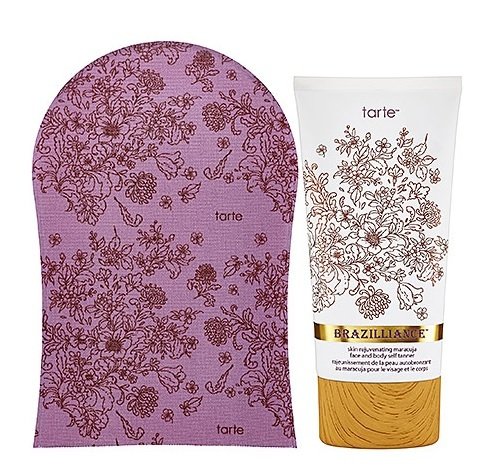
According to Rivas, tanning beds are even more dangerous than sun bathing. Wait, how is that even possible? "The appearance of tanning beds in the market has increased melanoma," she says. "The UV lights are much more intense and done in shorter periods of time." Looking for a safe tan? Try a self-tanning product, like Tarte Brazilliance Maracuja Face and Body Self Tanner ($39) instead. It's your only safe option.
Sunscreen is not enough
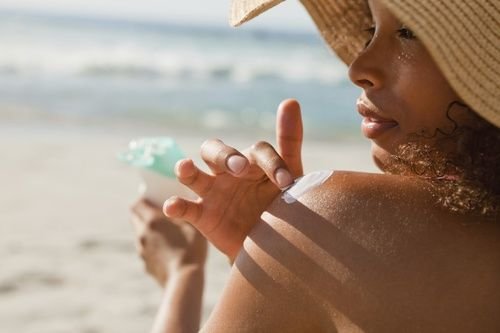
"Sunscreen alone cannot fully protect you; therefore we also recommend to wear protective clothing like long-sleeved shirts, pants, a wide-brimmed hat and sunglasses," says Rivas, who also claims most people don't actually use sunscreen properly. She recommends applying every two hours, especially if you're going to be outdoors for long periods of time. "You also need to avoid the sun between 10am-2pm, when the rays are the strongest," she says.
You need to use the right sunscreen
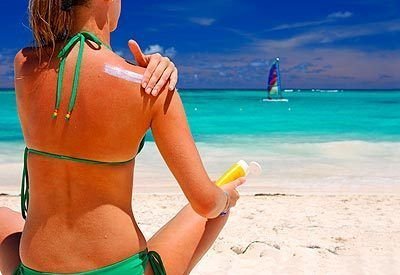
"The recommendation is to use at least SPF 30, which blocks 97 percent of the rays. Higher number SPFs block slightly more of the sun's rays but no sunscreen can block 100 percent," Rivas says.
You MUST use SPF when swimming
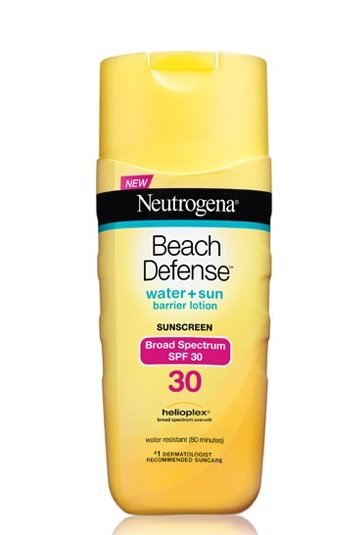
If you're going to hit up a beach or pool, make sure you opt for a water resistant, not waterproof sunscreen." Sunscreens must also stay water resistant up to 40 or 80 minutes (which means the sunscreen provides protection while swimming or sweating up to the time listed) and has a skin cancer/skin aging alert." Rivas says. Try Neutrogena Beach Defense Water + Sun Barrier Lotion SPF 30 ($10).

